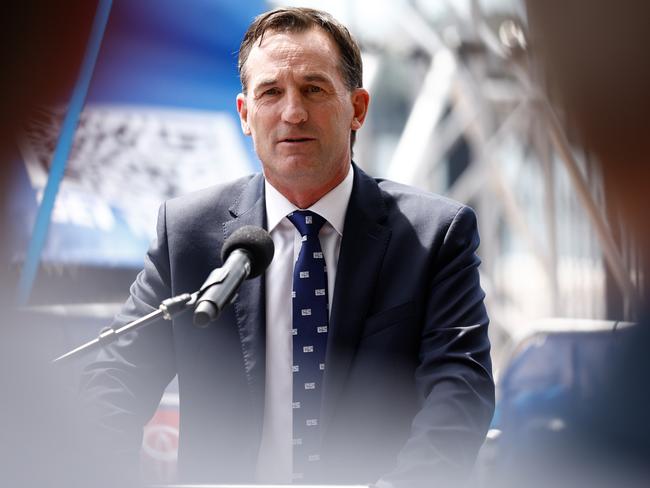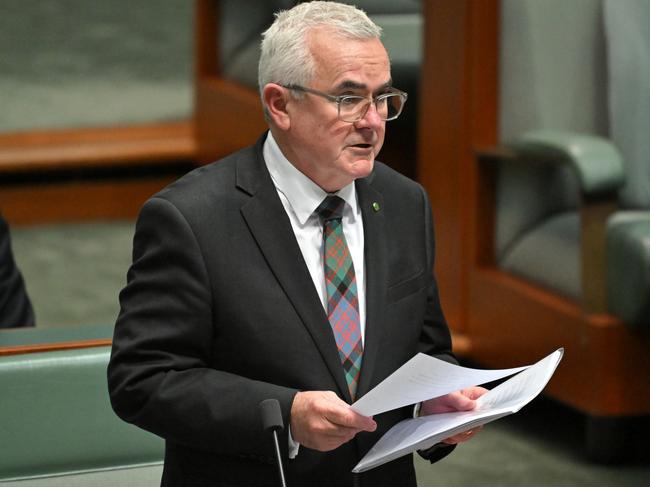Sport Integrity Australia says the AFL needs to overhaul its contentious illicit drugs policy
The boss of Australia’s anti-doping agency has warned that the AFL – and Australian sport more widely – is at a “crossroad” regarding drug use by players.
AFL News
Don't miss out on the headlines from AFL News. Followed categories will be added to My News.
The boss of Australia’s anti-doping agency has warned that the AFL – and Australian sport more widely – is at a “crossroad” as a damning report identified “key issues” around players buying cocaine, ice and ecstasy from criminals.
Sport Integrity Australia on Monday recommended an “immediate overhaul” of the AFL’s contentious illicit drugs policy, which includes a so-called “medical model” where players can avoid drug strikes and undergo “off the books” testing.
SIA also recommended “independent oversight” of the policy, despite concluding that secret tests conducted by club doctors were not in breach of the World Anti-Doping Code.
The agency’s chief David Sharpe warned that the AFL’s integrity was under threat from criminal enterprises “preying” on drug taking players who they could then blackmail to corrupt matches.
“Significant intervention is required immediately to address the illicit drug culture in sport and the increasing and unacceptable risks posed to players, officials, clubs, and sporting codes,” Mr Sharpe said.
“Sport Integrity Australia, along with several partner organisations, have identified evidence across Australian sports of clear dangers of criminals influencing sport through the supply of illicit drugs, including by preying on athletes or support staff to access inside information.”
Without intervention, he warned of “dire impacts to players’ health and wellbeing, and the potential to bring a code or team into disrepute through integrity threats”.

Mr Sharpe challenged the AFL to “be a leader in this space”.
The agency was highly critical of the league’s testing regime, saying: “The confidential nature of the medical model (between doctor and player) prevented the AFL from sharing information publicly, thus creating a degree of suspicion … The notion of screening tests by AFL club doctors may be uncomfortable, and at times present a dilemma to a club doctor regarding the reasons to disclose for a player withdrawing from a game.”
But it added that “on the information we have this conduct does not in itself constitute an ADRV (Anti-Doping Rule Violation)”.
The report further said: “In relation to the situation where a club doctor arranges for a player to do a urine test during the week – prior to their next match – to check if there are any illicit substances in their system … and the result came back positive, we were advised by several club doctors that this put them in an ethical conundrum.”
The SIA probe was triggered after federal MP Andrew Wilkie raised concerns in parliament in March about the “off the books” testing, as first reported in the Herald Sun.

Mr Wilkie told parliament he had obtained a signed statement from Melbourne Football Club doctor-turned-whistleblower Zeeshan Arain detailing the secret scheme.
Under the regime, players who registered a positive result to illicit drugs in the days before a game were advised to fake an injury or claim to have an illness so they could be pulled from the team and not be caught by SIA drug testers on game day, it was alleged.
Eddie Balic, the father of ex-Demons and Fremantle footballer Harley Balic, who died after a battle with substance abuse two years ago, later revealed that he blamed the AFL and its illicit drugs policy for the tragedy.
Mr Wilkie in March called on Prime Minister Anthony Albanese to intervene in the scandal, who referred the claims to SIA.
Global anti-doping chiefs pilloried the AFL over the emergence of the scheme, with World Anti-Doping Agency founding president Dick Pound likening the league’s practices to East Germany’s notorious state-run programs of the 1970s.
But the AFL had declared that it was “unapologetic” over the revelations and committed to “player wellbeing and welfare”.
AFL Players’ Association president Patrick Dangerfield has also strongly defended the drugs policy, saying its critics were “dinosaurs” who “live under a rock”.
In regards to the fake injuries claim, SIA on Monday said: “Club doctors that we spoke to throughout this assessment suggested that this practice is highly improbable in a high-performance environment such as the AFL and they had never witnessed it occur.”
SIA made a total of eight recommendations for improvements in the league’s drugs testing regime, including “the need for the AFL to enhance their education to all levels of the game and the agency has agreed to work with the AFL on their program”.
It said mechanisms on how players are withdrawn from games should be “more transparent so that relevant club staff know why their player is not available”.
The report also recommended the release of “de-identified” annual drugs data by the AFL to “increase transparency and clarity on the illicit drug issue in the game”.
And it called for testing in the AFLW.
Mr Wilkie said there was no doubt secret tests were conducted, which facilitated illegal drug use and helped ensure there were no positive match day tests.
He welcomed the recommendation that the AFL overhaul its policy to make it more transparent, designed to prevent illegal drug use, and have independent oversight.
“Regardless of the AFL dodging a WADA breach on a technicality, the fact remains that it’s an unsafe workplace likely to be in breach of any number of workplace health and safety laws,” Mr Wilkie said.
Federal Sport Minister Anika Wells said Sport Integrity Australia’s review highlighted the threats posed to Australian sport through the use of illicit drugs.
“I encourage sports to develop robust frameworks to identify and manage integrity threats that are underpinned by comprehensive programs,” Ms Wells said.
A statement from the AFL said that it “welcomed the assessment that found there was no breach of the WADA Code and that SIA found no evidence to suggest players feigned injuries to cover up for positive drug tests”.
“SIA’s recommendations will be considered as part of the current review of the AFL’s Illicit Drug Policy,” the AFL added.




